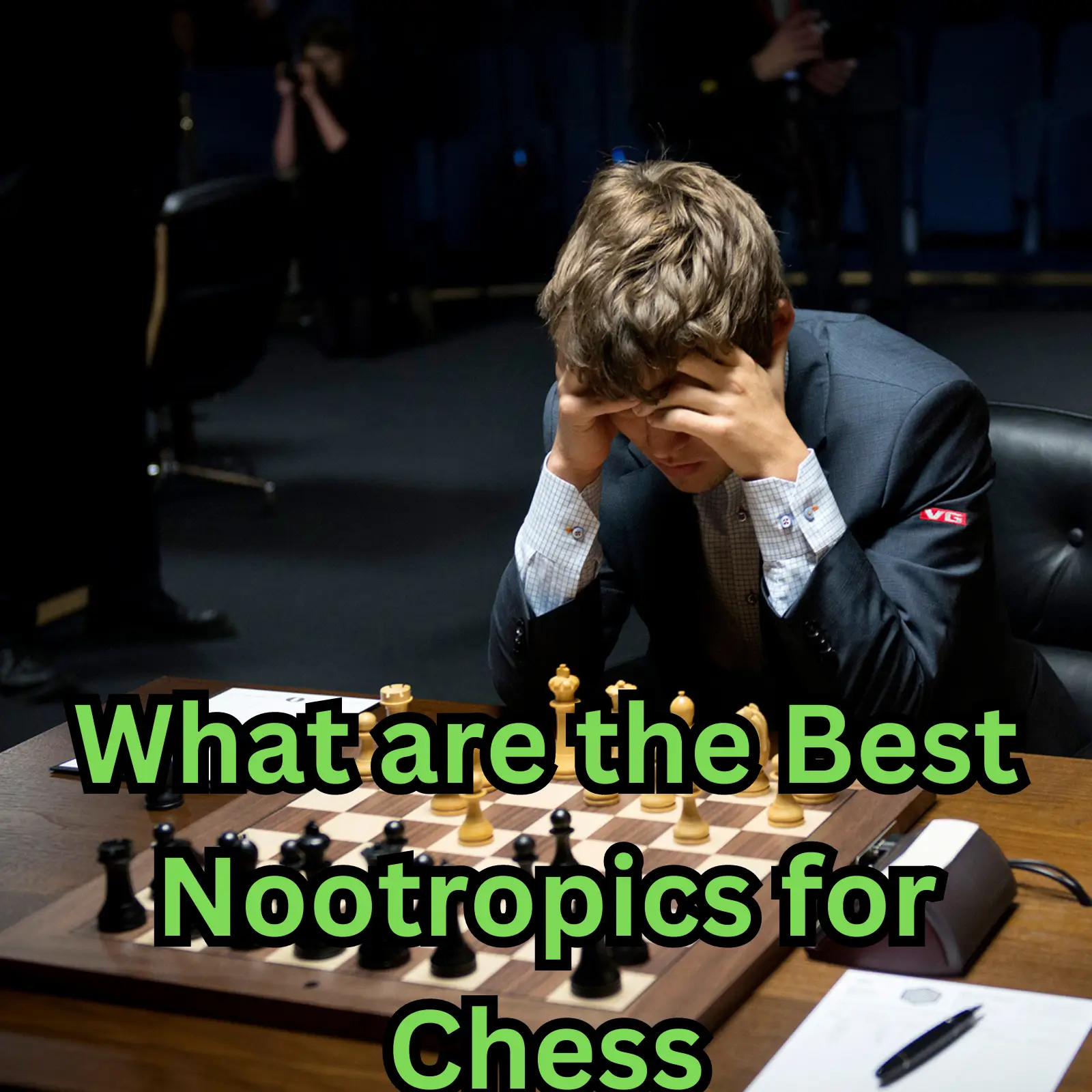
What are the Best Nootropics for Chess

What are the Best Nootropics for Chess
Introduction
In the world of competitive chess where mental agility and concentration reign supreme, players are always looking for ways to win more matches, be it opening preparation, improving their overall health, some even go so far as to sign up for a gym membership because some studies proved increased capacity for thinking and concentration after workouts.
But sometimes players go beyond these “natural” ways to increase performance, in this case some players look for drugs to increase the hours of practice that they can tolerate in a day or to make these hours more impactful. And some even take these during matches, or do they?
In this article we’re going to talk all about performance enhancing drugs in chess and in life, or how they are often called nowadays Nootropics
Why would anyone use drugs to play chess
Chess is a game that goes far beyond moving pieces on a board. It is a mental battlefield where players engage in a battle of wits, strategy, and foresight. To excel in chess, players must possess a wide range of cognitive abilities and mental skills.
Concentration is one of the most crucial mental demands of chess. Players must maintain unwavering focus throughout the game, analyzing positions, evaluating potential moves, and anticipating their opponent’s strategies. Even a momentary lapse in concentration can lead to a missed opportunity or a fatal mistake.
Memory is another essential aspect of chess. Players need to recall opening variations, recognize patterns, and remember past games to make informed decisions. The ability to remember and analyze previous moves and positions is vital for developing effective strategies and avoiding repeating mistakes.
Pattern recognition is a skill that separates the average players from the masters. Recognizing recurring patterns and motifs on the chessboard allows players to anticipate their opponent’s moves and plan their own strategies accordingly. This skill is honed through experience and extensive practice.
Mastering these mental demands is a lifelong pursuit for chess players. It requires not only natural talent but also dedication, practice, and continuous improvement. As we explore the potential benefits of nootropics for chess players, it is important to keep in mind the specific cognitive abilities and mental skills that are essential for success in this intellectually demanding game.
What are Nootropics or Smart Drugs
You might have heard about Nootropics before, these drugs are also called cognitive enhancers or smart drugs, they are believed to improve executive function and have gained increased attention in our increasingly rushed lifestyles in most modern cities of the world.
Nootropics can be classified into various categories based on their effects on the brain. Stimulants, such as caffeine and amphetamines, are commonly used to increase alertness and improve focus. They can help chess players stay mentally sharp during long matches and maintain concentration.
Adaptogens are another category of nootropics that help the body adapt to stress and promote overall well-being. Examples include ashwagandha and rhodiola rosea. These substances may help chess players manage the mental and emotional strain of competitive play, enhancing their resilience and reducing fatigue.
Racetams, such as piracetam, are a class of nootropics that are believed to enhance memory and cognitive function. They may improve the brain’s ability to process information, leading to better recall and faster thinking. Chess players can potentially benefit from racetams by enhancing their memory for opening variations and improving their ability to analyze complex positions.
It is important to note that the effects of nootropics can vary from person to person, and not all substances marketed as nootropics have been extensively studied. Additionally, the long-term effects and potential risks associated with their use are unkown.
Before considering the use of nootropics, it is advisable to consult with a healthcare professional. They can provide guidance on the appropriate substances, dosages, and potential interactions with other medications. Responsible use and adherence to recommended dosages are crucial to ensure safety and minimize potential side effects.
While nootropics may offer potential benefits for chess players, it is important to remember that they are not a substitute for disciplined practice, strategic thinking, and mental training.
Risks and Considerations
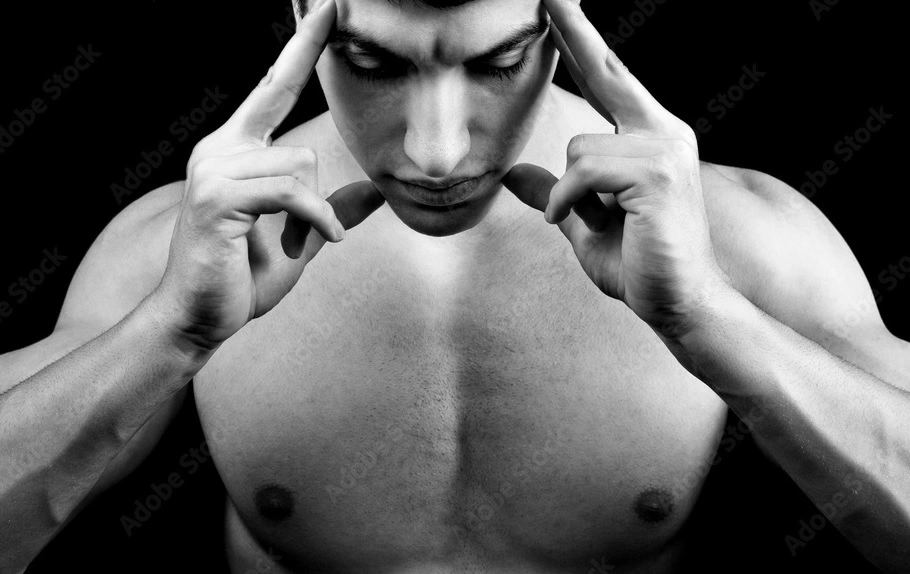
Focus
While nootropics have gained popularity for their potential cognitive benefits, it is important to consider the potential risks and exercise caution when using these substances. Here are some key considerations to keep in mind:
Lack of Regulation
The market for nootropics is largely unregulated, meaning that the quality, purity, and safety of these substances can vary significantly. It is crucial to source nootropics from reputable manufacturers and ensure that they undergo rigorous testing for quality and purity.
Individual Variations
Nootropics can affect individuals differently. What works for one person may not have the same effect on another. Factors such as genetics, overall health, and existing medical conditions can influence how the body responds to these substances. It is important to be aware of individual sensitivities and consult with a healthcare professional before starting any new nootropic regimen.
Potential Side Effects
While many nootropics are generally considered safe when used responsibly, they can still have side effects. These can range from mild effects like headaches, nausea, or irritability to more severe reactions in some individuals. It is important to be aware of the potential side effects associated with specific nootropics and discontinue use if any adverse reactions occur.
Drug Interactions
Nootropics can interact with other medications or supplements that a person may be taking. It is crucial to consult with a healthcare professional to ensure that there are no potential interactions that could have adverse effects on health or interfere with the effectiveness of other medications.
Dependency and Tolerance
Some nootropics, particularly stimulants, have the potential for dependency and tolerance. Regular use of these substances may lead to a diminished effect over time, requiring higher doses to achieve the same results. It is important to use nootropics responsibly and avoid excessive or prolonged use to minimize the risk of dependency or tolerance.
Ethical Considerations
In competitive chess, the use of certain substances may be prohibited by governing bodies. It is important to be aware of the rules and regulations of chess organizations and ensure compliance with their guidelines.
Could take away from your love of the game
Taking stimulants just to do better at chess can take away from the intrinsic motivation to improve at chess, so be careful of relying on these to train and get better at the game.
Should you take nootropics to improve at chess
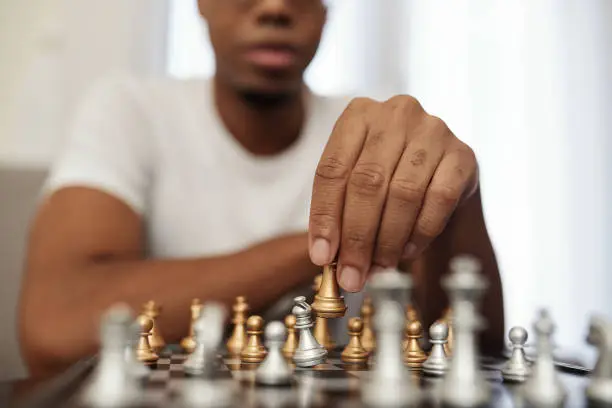
Concentration
Mixing nootropics and chess seems simple but is not. While these drugs do offer potential benefits they are not as simple as they seem at first sight.
Before incorporating nootropics into their regimen, players should consult with healthcare professionals to ensure responsible use and minimize potential risks. It is important to source high-quality products from reputable manufacturers and be aware of individual sensitivities and potential side effects.
It’s also really important that nootropics are not a substitute for practice, strategy, and overall training. Regular practice, physical exercise, healthy lifestyle choices, and adequate rest remain fundamental pillars of chess improvement and can be just as impactful as any drug.
The pursuit of chess excellence lies in the dedication to continuous improvement, disciplined practice, and the development of mental skills. Nootropics may offer a potential edge, but it is the player’s passion, perseverance, and strategic thinking that will ultimately determine success on the chessboard.
And to most of us who are not professional chess players these points are even more important. For most casual and hobbyist players chess is something you should do to enjoy yourself, obsessing over your rating can reduce your enjoyment of the game and will lead you to burn out eventually.
Conclusion
I’d recommend anyone seriously considering nootropics to improve at chess to first ask themselves this question: Why do I enjoy chess? Is it to beat other people and feel better about myself or is it about improving and seeing your play slowly rise, if it’s the latter then good job, you are set to enjoy chess in a healthy way for a long while yet. But if you answered the first one then be careful, that path could lead you into a negative head space.
In conclusion, the potential benefits of nootropics for chess players are intriguing, but they should be approached with careful consideration and responsible use. By understanding the mental demands of chess, exploring the different types of nootropics, and being aware of the risks and considerations, players can make informed decisions about incorporating these substances into their training regimen.
Related
References
You may also like
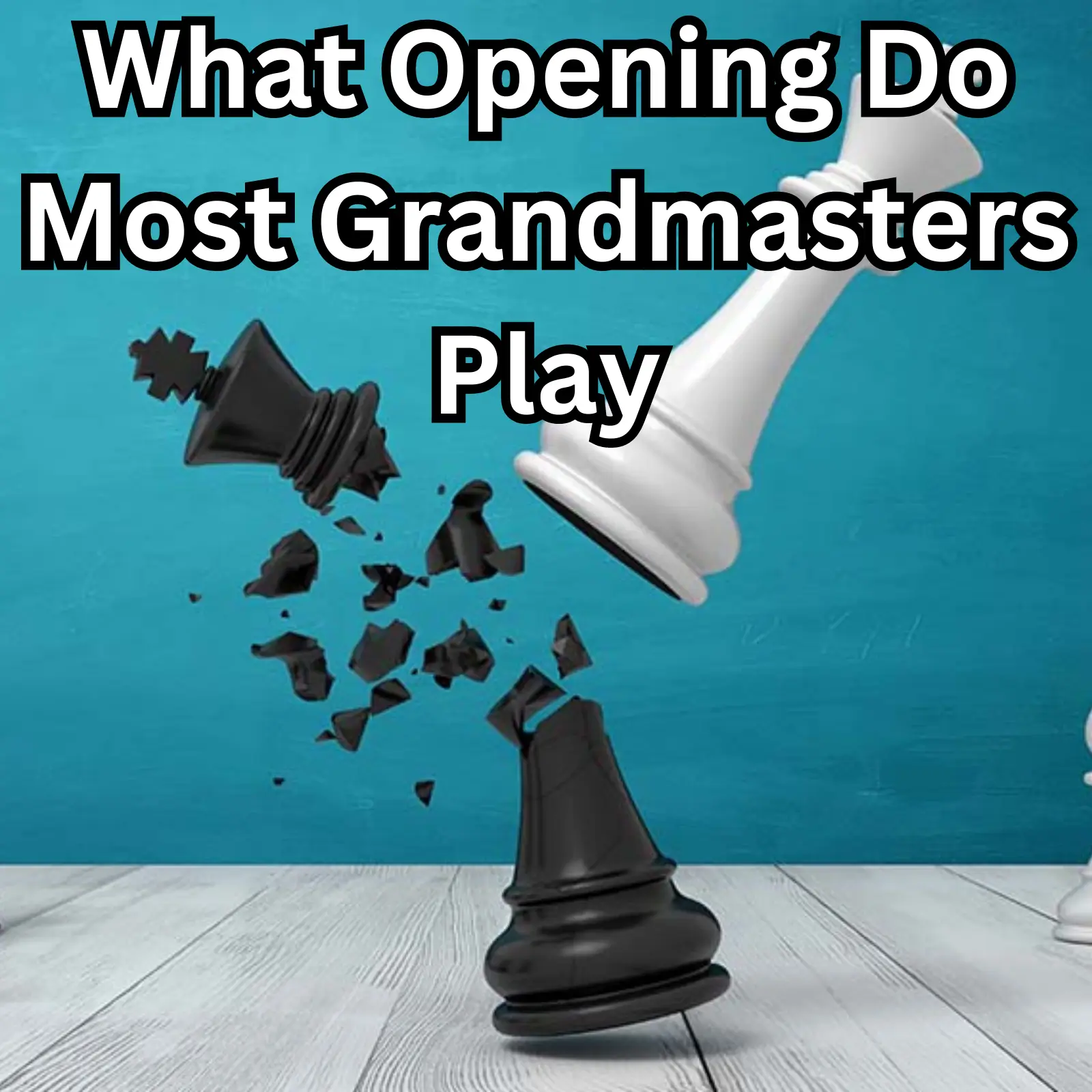
What Opening Do Most Grandmasters Play
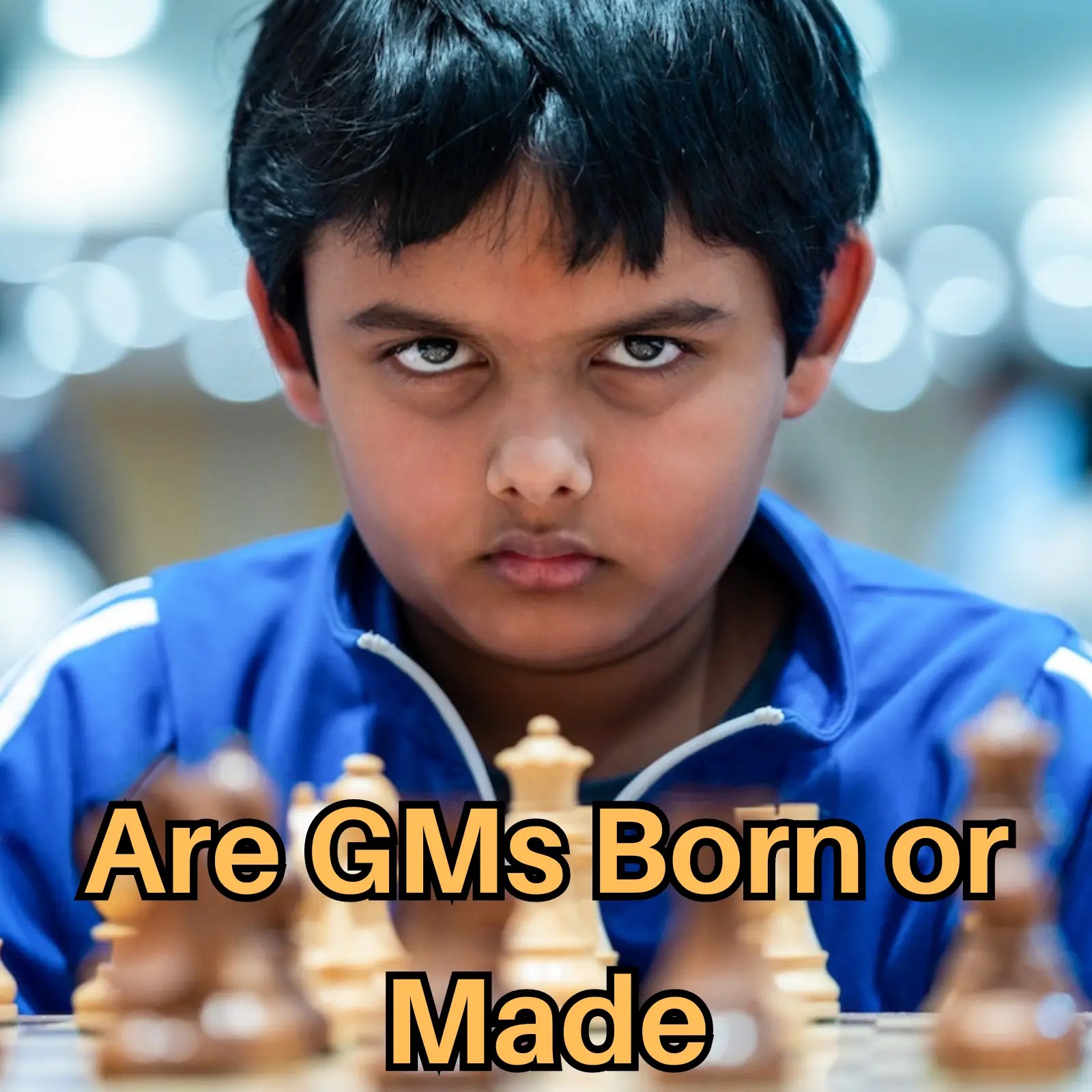
Are Grandmasters Born or Made
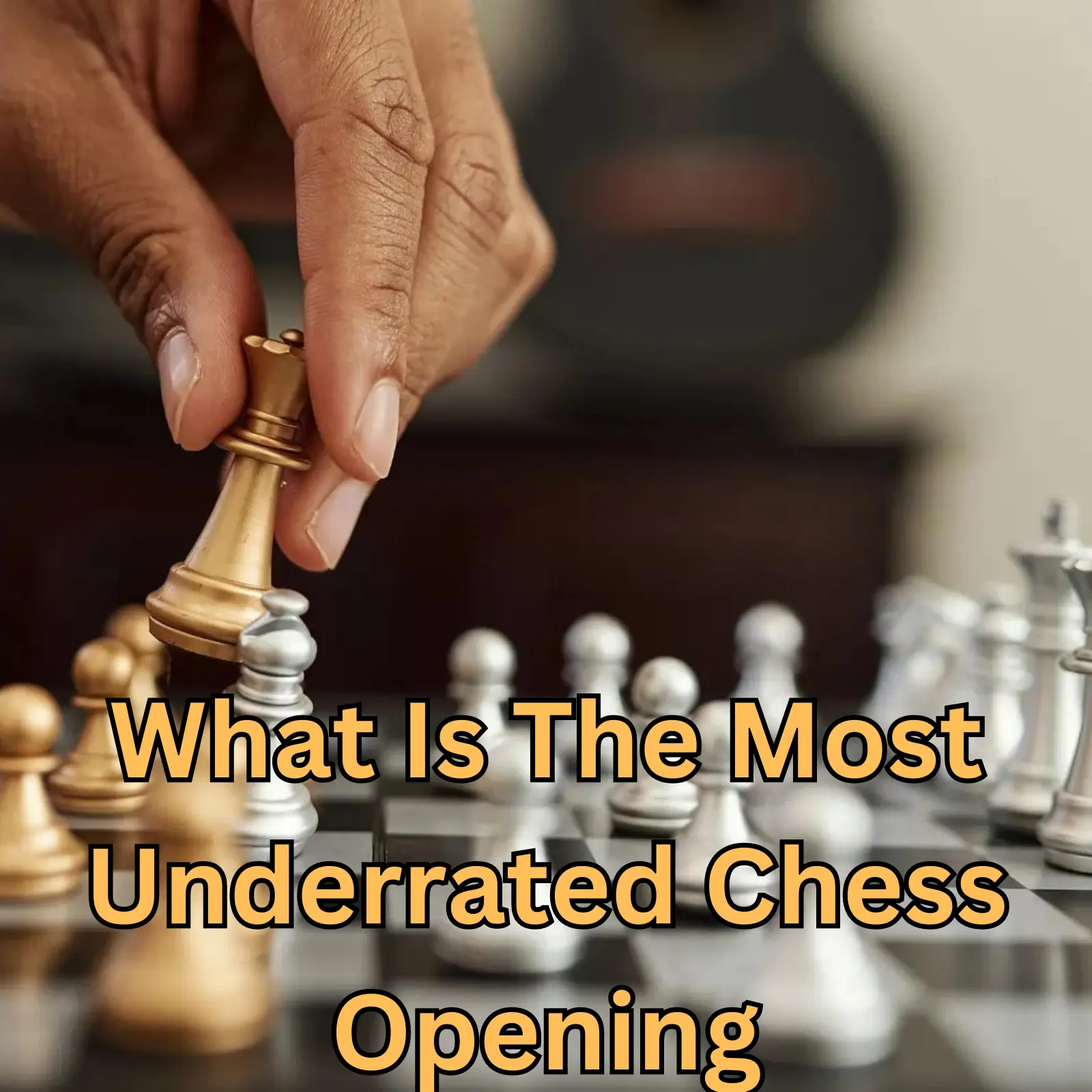
What Is The Most Underrated Chess Opening
Archives
- February 2026
- January 2026
- December 2025
- November 2025
- October 2025
- September 2025
- August 2025
- July 2025
- June 2025
- May 2025
- April 2025
- March 2025
- February 2025
- January 2024
- October 2023
- September 2023
- August 2023
- July 2023
- June 2023
- May 2023
- April 2023
- March 2023
- February 2023
- January 2023
- December 2022
- November 2022
- October 2022
- September 2022
- August 2022
- June 2022
- May 2022
- April 2022
- March 2022
- January 2022
- December 2021
- November 2021
- October 2021
- August 2021
- November 2020
- July 2020
- May 2020
- April 2020
- March 2020
- August 2018
- July 2018
- June 2018
- April 2018
- March 2018
Categories
- Aftercare Procedures
- Age Groups
- AI/ML
- Alternative Medicine
- Ambient Computing
- Animal Health
- Animal Husbandry
- Animals
- Anti-Aging
- Architectural Design
- Art And Technology
- Auditory Science
- Augmented Reality
- Automation
- Babies
- Baby
- Beauty & Skincare
- Beauty Industry
- Biohacking
- Biomechanics
- Book Reviews
- Breastfeeding
- Budgeting
- Budgeting Strategies
- Business
- Cardiovascular Health
- Career Advice
- Career Development
- Career Growth
- Cats
- Chess
- Chronobeauty
- Circular Economy
- Civic Technology
- Cleaning Tips
- Cloud Computing
- Cognitive Health
- Cognitive Performance
- Cognitive Science
- Community
- Community Building
- Community Engagement
- Community Living
- Computer Vision
- Consumer Guides
- Consumer Trends
- Container Gardening
- Content Analysis
- Content Non-Technical
- Content Strategy
- Cooking Techniques
- Cosmetic Chemistry
- Cultural Events
- Cycling
- Data Analysis
- Data Engineering
- Data Science
- Database
- Design Psychology
- Design Trends
- Developer Productivity
- Diet
- Diet
- Diet And Nutrition
- Digital Identity
- Digital Media
- Digital Wellbeing
- DIY
- DIY Projects
- Dogs
- Engineering Culture
- Entertainment News
- Environmental Impact
- Environmental Science
- Equity Compensation
- Ethical AI
- Exercise
- Exercise Science
- Exercise Technique
- Exotic Pets
- Fall Gardening
- Family
- Family Health
- Family Life
- Fashion Business
- Fashion Industry
- Fashion News
- Fashion Tech
- Financial Analysis
- Financial Optimization
- Financial Planning
- Flooring Maintenance
- Food
- Food Psychology
- Food Safety
- Food Science
- Food Tech
- Functional Fitness
- Functional Training
- Future Of Work
- Garden Care
- Garden Maintenance
- Gardening Tips
- Geospatial Data
- Gig Economy
- Greece
- Greek
- Greek Food
- Green Technology
- Gymnastics
- Hardware Engineering
- Health
- Health And Wellness
- Health Informatics
- Health Science
- Health Tech
- Health Technology
- Healthcare
- Healthcare Management
- Healthy Eating
- Healthy Recipes
- Holistic Health
- Holistic Wellness
- Home & Living
- Home Decor
- Home Financing
- Home Health
- Home Improvement
- Home Maintenance
- Home Organization
- Home Styling
- Horticulture
- Household Chemistry
- Identity Management
- Indoor Gardening
- Industrial Design
- Industry Analysis
- Infant Nutrition
- Infrastructure Management
- Ingredient Deep Dive
- Integrative Health
- Integrative Medicine
- Interior Design
- Internet of Things
- Internet of Things (IoT)
- Invalid Request
- Investment Strategies
- Investment Strategy
- IoT
- Kids
- Leadership Development
- Learning Strategies
- Lifestyle
- Lifestyle Brands
- Lifestyle News
- Lifestyle Optimization
- Literary Criticism
- Literature
- Logistics Management
- Material Science
- Materials Science
- Meal Planning
- Media Analysis
- Meditation
- Mental Health
- Mental Performance
- Mental Wellness
- Miami
- Miami Food
- Mind And Body
- Minimalism
- Mobile Development
- Neuroscience
- No Applicable Categories
- Nursing
- Nutrition
- Nutrition News
- Open Source
- Operating Systems
- Operational Resilience
- Opinion
- Organization Tips
- Outdoor Living
- Over 40
- Over 50
- Over 60
- Parenting
- Parenting
- Parenting Strategies
- Performance
- Performance Optimization
- Personal Development
- Personal Finance
- Personal Growth
- Personal Productivity
- Pet Care
- Pet Safety
- Philosophy
- Plant Care
- Politics
- Product Formulation
- Productivity
- Productivity Engineering
- Protein
- Psychology
- Psychology of Space
- Quantified Self
- Reading Culture
- Real Estate Investment
- Recipes
- Regulatory Compliance
- Remote Work
- Renovation Planning
- Resource Management
- Respiratory Health
- Responsible Pet Ownership
- Retail Strategy
- Retail Technology
- Robotics
- Science
- Seafood
- Seasonal Gardening
- Security
- Sedentary Health
- Self-Care
- Skincare Science
- Skincare Trends
- Sleep
- Sleep Health
- Smart Home
- Smoothies
- Social Impact
- Soft Skills
- Soil Health
- Spatial Computing
- Spatial Design
- Stress Management
- Supplements
- Sustainability
- Sustainability Science
- Sustainable Engineering
- Sustainable Fashion
- Systems Engineering
- Tax Optimization
- Tax Strategy
- Tech Investment
- Technical Writing
- Testing
- Travel
- Travel News
- Travel Safety
- Travel Tips
- Trend Analysis
- Tropical Plants
- Uncategorized
- Urban Gardening
- Urban Planning
- User Experience
- Veggie
- Vietnam
- Virtual Events
- Volunteering
- Wealth Management
- Wearable Technology
- Wellness
- Wellness Technology
- Winter Gardening
- Work-Life Balance
- Workplace Culture
- Workspace Setup
- World
- Writing
- Writing Skills
- Year In Review
- Yoga
- Yoga News
- Zero Waste

Leave a Reply